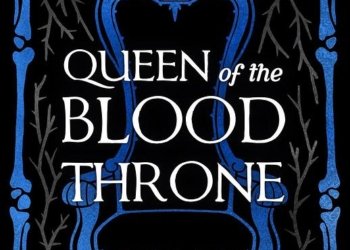No products in the cart.
Ghost of the Nile: Gods of Egypt by Veronica Scott
After a distinguished career in the Pharaoh’s Own Guard, Periseneb was on his way home when he was brutally killed and denied the right to a peaceful death. He spent 200 years fighting monsters, snakes, and other unknown dangerous animals in the underworld since he was unable to enter Paradise. When the goddess Ma’at presents him with a deal, he is taken aback. He will have 30 days to attempt to make things right.
He will spend all of eternity in paradise if he succeeds. The young woman Neithamun, who has a shaky handle on the formerly vast estate of Periseneb’s youth, makes him aware of the dubious challenge he faces. Never one to shy from a fight Periseneb will do what he can to help Neithamun fight the people looking to sabotage and steal her land and make the once great estate, great again.
The book Ghost of the Nile: Gods of Egypt is superbly written. Scott writes in a detailed manner that is assured of its historical context. In 200 years in ancient Egypt, a lot can change, but it is also possible that a lot will remain the same. Because of this, Periseneb can easily blend in with a society that is in need of a hero while raising few eyebrows.
Neithamun’s quiet desperation and that of those who love and support her are depicted by Scott with a beautiful elegance that allows her to layer the plot. Although we may be travelling with Neithamun, the future of the entire Nome (province) is ultimately at risk.
The eponymous underworld character Periseneb is introduced to us by Scott. Without feeling any discomfort or the desire to rest, he has been fighting. He no longer has any sense of time or how he died, but he still remembers who he was before he died. He is a formidable foe and his chronology was shortened, making him the ideal choice for Ma’at’s scheme.
When his only son rebelled and sought the fame and money that may have made him deserving of the daughter of the house, Periseneb’s father, who served as the property’s overseer, raised Periseneb to continue in his footsteps. Scott constantly and naturally refers back to the past rather than dismissing it. Periseneb has many regrets, and in addition to wanting a tranquil afterlife and the chance of seeing his father again, he also wants to make up for the wrongs he has done. When he gives Neithamun a rare lotus, she and her people realise that their greatest chance is to trust him.
When we first meet Neithamun, she is competing against Settlement Day. If she can’t come up with the taxes owed on her estate by the time the pharaoh’s new agent shows there, she will lose her property, leaving her with very little options as a woman in the ancient world. This is her make-or-break moment. Her opponent is a neighbour with a tenuous relationship to the family. To convey to the populace that dealing with Neithamun is risky, he threatens the residents. To stop her from obtaining the money required to settle the debt and protect the estate, he ambushes her employees and steals what he can from them.
Even though Scott only permits minimal interaction between Neithamun and her adversary, the tension is still present. Few people are willing to help the protagonists before Periseneb shows there, and they are on a very tight schedule. The two characters have a convincingly good relationship. Despite the fact that they are both handsome, their connections are built more on personalities than on snap-and-fit pieces. Scott has a gift for creating sympathetic characters who are flawed in an unknowable environment.
One of the most intriguing and well-written Egyptian gods in Scott’s trilogy is Ma’at. She is the goddess of honesty and may be more straightforward and sensible than the other gods we are familiar with. Her intentions remain a mystery, but it is evident that she supports her hero and wishes that he is able to figure out what needs to be done.
She gives Periseneb some latitude in carrying out the duty she has given him. In order for him to call on her four times for assistance, Ma’at tattoos four feathers on his shoulder. She fits right in with the plot, and Periseneb, the figure that Scott has created, is aware that the passes provided are not to be taken lightly.
There isn’t much romance and little storyline in Ghost of the Nile: Gods of Egypt. It has a robust plot that strengthens any bond the main characters may form and gives weight to an emotional connection that is sincere. Rather than implying that characters are in love, Scott upholds the idea of demonstrating why they may be.
Scott needs a society with a strong magical and traditional culture to make her story work. Periseneb sets out to see if anyone else is having issues with Heron Marsh’s rival and discovers a world that is remarkably similar to the one he left behind, complete with the same legends and customs even though everyone he has ever known has passed away. Scott’s flow is very well thought out and never is an implausible moment in this magical story.
About The Book
Egypt, 1550 BCE: Betrayed, murdered, and buried without proper ceremony, Egyptian warrior Periseneb is doomed to roam the gray deserts of the dead as a ghost for all eternity. But then the goddess of truth offers him a bargain: return to the world of the living as her champion for 30 days. If he completes his mission, he’ll be guaranteed entry into Paradise. Periseneb agrees to the bargain but, when he returns to the living world, two hundred years have passed and nothing is quite as he expected.
Neithamun is a woman fighting to hang onto her family’s estate against an unscrupulous nobleman who desires the land as well as the lady. All seems lost until a mysterious yet appealing ex-soldier, Periseneb, appears out of nowhere to help her fight off the noble’s repeated attacks.
Meanwhile, Periseneb’s thirty days are rushing by, and he’s powerless against the growing attraction between himself and Neithamun. But their love can never be. For his Fate is to return to the Afterlife, and Death cannot wed with Life…
Other Books in The Gods of Egypt Series:
Priestess of the Nile
Warrior of the Nile
Dancer of the Nile
Magic of the Nile
Healer of the Nile
The Review
Ghost of the Nile: Gods of Egypt
10 Score
Periseneb was a warrior, doomed to roam the underworld forever, returned to life 200 years after his birth by the Goddess Ma'at, to fulfill a 30 days mission. Neithamun is the last surviving owner of a once thriving estate, struggling to hang on against a greedy neighbor - but this petty struggle, and the growing love and respect between Periseneb can't be why the Goddess of Truth reembodied a ghost. Hint: It's not. Beautifully written, and with tension that keeps building until a very exciting and satisfying, this is a wonderful read. If you enjoy historical fiction with a touch of the supernatural, especially if you're a little weary of Dukes and Comtes, this is a fabulous book and series. You don't have to read them all (but you'll want to).
PROS
- Hauntingly Good.
- Fascinating Adventure.
- Wonderful Imagination.
- Fearless Females In Egypt.
CONS
- Silly Premise.
- Unnecessary Sleaze.
- Dull & Boring.
- No Plot Development.










